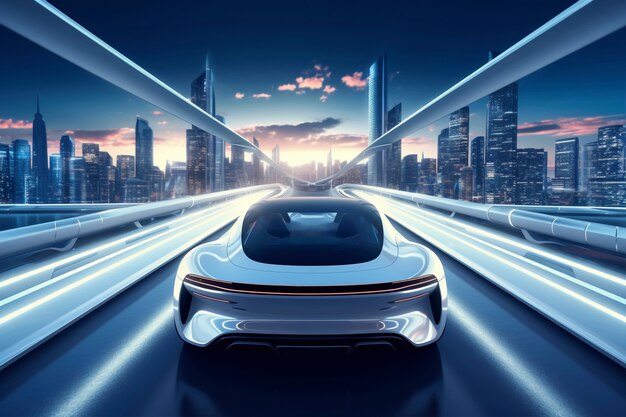
Electric vehicles (EVs) are known for their instant torque, but that doesn’t always translate to lightning-fast speeds. The more budget-friendly options like the Chevrolet Bolt EV and Hyundai Kona Electric can zip around town easily but aren’t designed for the drag strip. On the other hand, higher-end models can rival some of the most powerful traditional sports cars, and often outperform them.
In this article, we’re focusing on major brands because smaller companies like Rimac and Pininfarina aren’t widely available, and lack extensive third-party testing. To ensure accuracy, we’re including zero-to-60 mph and quarter-mile times from Motor Trend. We’ve divided this article into two parts: current market offerings and upcoming models.
The Tesla Model S reigns supreme with its Plaid variant, boasting a Tesla-claimed zero-to-60 time of 1.99 seconds. Motor Trend even clocked it at an astonishing 1.98 seconds. This model has a 100 kilowatt-hour battery and offers 1,020 horsepower, making it slightly faster than its closest competitors.
Lucid, a newer player in the EV market, has made impressive strides with the Lucid Air. The fastest variant, the Lucid Air Sapphire, claims to be the quickest EV currently available. While Lucid reports a zero-to-60 time of 1.89 seconds, Motor Trend recorded a still-impressive 2.2 seconds, thanks to its powerful triple-motor setup. The production model is expected to be even faster.
Tesla used to be the fastest, but now the Model S Plaid has eclipsed even its previous records and consistently beats the Porsche Taycan Turbo S. The Taycan hits 60 mph in 2.4 seconds and completes a quarter mile in 10.3 seconds, impressive but not quite enough to catch the Plaid. This model features a 93.4kWh battery and can produce up to 750 horsepower with Launch Control activated.
Audi’s RS e-tron GT isn’t as quick as the Teslas or Porsches but is still incredibly fast, hitting 60 mph in 2.9 seconds. Its design is particularly eye-catching, which adds another layer of appeal. This model includes a 93.4kWh battery and can deliver up to 637 horsepower based on the mode.
The Mercedes-AMG EQS may not break the three-second barrier for zero-to-60 times, but it’s far from slow. It achieves this in 3.0 seconds with 649 horsepower and 700 lb-ft of torque. Additionally, its lavish and comfortable interior makes it a strong contender for those wanting a blend of speed and luxury.
The Tesla Model X Plaid is almost among the fastest EVs but lacks enough testing data as it’s just begun rolling out. If you need a fast SUV, the Model X Plaid seems promising. The upcoming Tesla Cybertruck’s top model, the three-motor Plaid, is claimed to reach 60 mph in under 2.9 seconds, with Motor Trend estimating around 800 horsepower and 1,000 lb-ft of torque.
Finally, Tesla’s forthcoming Roadster aims to be one of the fastest EVs with a 1.9-second zero-to-60 time and an 8.8-second quarter-mile, driven by a 200kWh battery. However, the exact power output remains unknown, and Tesla has postponed its release multiple times, so we’ll have to wait to see if these claims hold true.